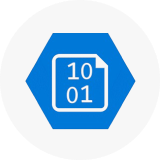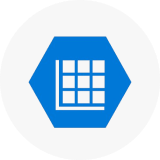
Oracle is a complete enterprise cloud platform that helps companies transform their business and accelerate innovation. Oracle offers a comprehensive and fully integrated cloud applications and platform services stack.
With Oracle, businesses can take advantage of the latest technologies to improve operations, drive growth, and extend their reach into new markets. This article will discuss what Oracle is and how it can benefit your business.
What is Oracle, and what are its main features?
Oracle provides a broad range of software as a service (SaaS), platform as a service (PaaS), and infrastructure as a service (IaaS) solutions to help organizations move faster, lower IT costs, and scale.
Oracle's SaaS solutions include enterprise resource planning (ERP), customer relationship management (CRM), human capital management (HCM), and supply chain management (SCM). Oracle's PaaS offerings include database, Java, big data, and social. Finally, Oracle IaaS provides compute, storage, networking, and security resources that can be used to run any workload.
How Can Oracle Benefit My Business?
Oracle can benefit your business in many ways:
- Reduce IT costs: IT costs are often one of the most significant expenses for businesses. Oracle's cloud solutions can help you reduce these costs by making it easier and more cost-effective to manage your IT infrastructure (CPU, storage, networking, etc.).
- Increase agility: The high-performance Oracle cloud enables you to be more agile in responding to market changes and opportunities. Oracle's cloud solutions can help you increase your agility by making it easy to provision new resources and scale your operations as needed.
- Drive innovation: The cloud provides a platform for businesses to experiment with new ideas and technologies. Oracle data solutions can help you drive innovation by providing the tools and resources to develop and deploy new applications quickly.
- Improve operational efficiency: The cloud can help you improve your operational efficiency by automating tasks and processes. Oracle's cloud service can help you automate tasks such as provisioning resources, deploying applications, and managing infrastructure.
- Improve security and compliance: Security and compliance are significant concerns for businesses. Oracle's cloud solutions can help you secure your data and applications with features such as encryption, user authentication, and access control.
The Importance of Cloud Databases
As the world becomes increasingly digitized, businesses are generating more data than ever before. This data can improve business operations, but only if it is properly managed and stored. Cloud databases are a critical part of any cloud computing strategy because they provide a scalable, reliable, secure way to store data.
By using Oracle database services, you can ensure that your data is in good hands. Oracle has been a leader in database technology for more than 44 years and offers a comprehensive set of features to meet the needs of any organization, large or small.
Top business functions that use cloud databases
An Oracle DB can be used in a variety of different business functions, including:
- Analytics: Analytics is important for understanding how your business is performing. Cloud databases can help you collect and store data for analysis.
- IoT: The Internet of Things (IoT) is a network of connected devices that generate data. This data can be stored in a cloud database and used to improve business operations.
- Web and mobile applications: Web and mobile applications use databases to store data such as user accounts, preferences, and application files.
- E-commerce: E-commerce platforms use databases to store product information, customer orders, transaction processing, and payment information.
- Customer relationship management (CRM): CRM applications use databases to store customer data, such as contact information, purchase history, and support requests.
- Enterprise resource planning (ERP): ERP systems use databases to store information such as inventory levels, order history, and financial data.
- Supply chain management (SCM): SCM systems use databases to store information about suppliers, inventory levels, and shipping schedules.
Cloud Databases vs. On-Premises Databases
There are two main types of databases: cloud databases and on-premises databases. Cloud databases are hosted in the cloud, while an on-premises data warehouse is hosted on your own servers.
There are a few key differences between these two types of databases:
- Cost: Cloud databases can be more cost-effective than on-premises because you only pay for the resources you use. On-premises databases require an upfront investment in hardware and software.
- Scalability: Cloud databases can be easily scaled up or down with upgrades. On-premises databases require capacity planning to avoid overuse or underuse of resources.
- Flexibility: Cloud databases can be quickly provisioned and deployed. On-premises databases can take weeks or months to deploy.
- Security: Cloud databases offer built-in security features, such as encryption and user authentication. On-premises databases require you to implement your own security measures.
Oracle Database Management System
Database management systems (DBMS) are software used to store, retrieve, and manage databases, and they are essential for keeping data organized and accessible. Oracle's data management system is a robust, scalable, and secure system that can handle any size of business.
Oracle Database offers many advantages, including:
- Multiple editions: Oracle Database offers a variety of editions (e.g., enterprise edition, standard edition, etc.), each with its own features and price point. This makes it easy to find an edition that meets your needs.
- Clusters: With real application clusters (RAC), Oracle Database can provide high availability and scalability.
- Failure recovery: Downtimes and outages can be minimized with recovery managers, flashback database, and data guard features. This allows you to recover from failures with minimal data loss quickly.
- Compatibility: Oracle Database is compatible with various operating systems, including Windows, Linux, and UNIX. This makes it easy to deploy on your preferred platform.
- Supports multiple languages: Oracle Database supports various languages, including Java, C++, and PL/SQL. This makes it easy to manage relational databases by allowing developers to use the language they are most comfortable with.
Whether you're looking for a powerful relational database management system (RDBMS) or an easy-to-use one, Oracle Database is a great option. It offers a variety of features that make it an ideal choice for any size of business.
API Creation and Automation
Having a database solution opens the door to a world of API creation and automation possibilities. APIs are a way to access data and functionality from an application, and they are typically used to expose data or functionality to web or mobile apps.
With an Oracle database, you can easily create APIs for your data. This allows you to make your data accessible to applications that need it. You can also use APIs to automate tasks, such as creating new records or updating existing ones. Businesses can use APIs to streamline their operations and optimize efficiency.
How DreamFactory Can Help
DreamFactory is the best-in-class solution for no-code API creation. It is an easy-to-use platform that makes it simple to create and deploy APIs. In addition, DreamFactory also allows businesses to build data integrations, automate workflows, and more through their easy-to-use platform and developer tools. This is essential for companies that want to get the most out of their data but don't have the time or programming language experience to code their own solutions.
If your company is looking for a way to improve efficiency and get more out of their data, then DreamFactory is the perfect solution. Click here to start a free trial today.
Read More:
As a seasoned content moderator with a keen eye for detail and a passion for upholding the highest standards of quality and integrity in all of their work, Spencer Nguyen brings a professional yet empathetic approach to every task.
























 Blog
Blog
